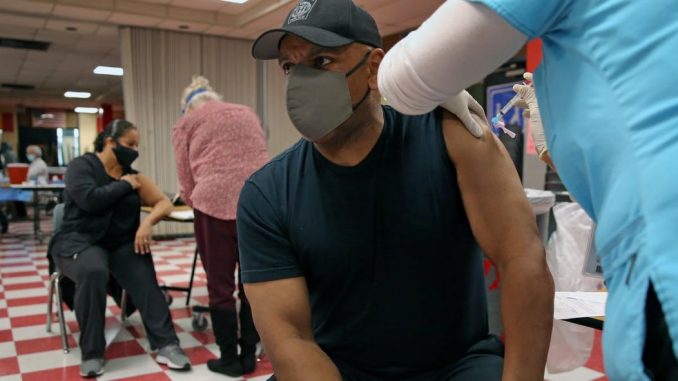
By Victor Omondi – (Source: yourblackworld.net) – s the number of people infected with the coronavirus rises again, employers in the United States who mandate vaccinations are faced with an uncomfortable question: what is an employee’s religious belief?
However, there are exceptions to every rule. According to the US Equal Employment Opportunity Commission (EEOC), employers must make reasonable accommodations for employees who’re unable to be vaccinated due to medical reasons or who refuse vaccination due to “sincerely held religious convictions.”
“It’s such a touchy subject for both sides,” remarked Erin McLaughlin, a large-employer lawyer at Buchanan Ingersoll & Rooney.
“This issue has moved to the forefront as we see more and more mandatory vaccination policies,” McLaughlin said.
She added that there had been more regulatory advice on exemptions for disabilities than religious views, which made it more difficult for businesses to develop vaccine policies.
 The widespread availability of coronavirus vaccines in the United States reduced infections considerably from January to June, but the current 7-day moving average of daily new cases is up 33.7 %, mostly due to the Delta variety, according to the US Centers for Disease Control and Prevention.
The widespread availability of coronavirus vaccines in the United States reduced infections considerably from January to June, but the current 7-day moving average of daily new cases is up 33.7 %, mostly due to the Delta variety, according to the US Centers for Disease Control and Prevention.
According to Raeann Burgo, an attorney with Fisher Phillips, a law company that represents businesses, the EEOC defines religion broadly to include moral and ethical convictions, as well as objections to receiving injections of specific substances.
Lawsuits over COVID-19 vaccines could take months, according to legal experts, but there are precedents to follow.
Sakile Chenzira, a customer service worker at Cincinnati Children’s Hospital Medical Center, was dismissed in 2010 for refusing a flu shot because she was a vegan. Chenzira filed a lawsuit, but the hospital asked for the case to be dismissed, claiming she mistook a dietary habit for a religious belief. Because of her genuineness, the federal judge decided in her favor. The parties reached an agreement in private.
“As an employer, you can inquire whether an employee has a sincerely held religious belief. It’s just kind of a fraught investigation,” Brian Dean Abramson, an academic and vaccination law expert, remarked.
Employers must be careful not to appear to be invading or harassing employees’ privacy and firms must be conscious that employees’ religious views may change over time, he says.

Be the first to comment